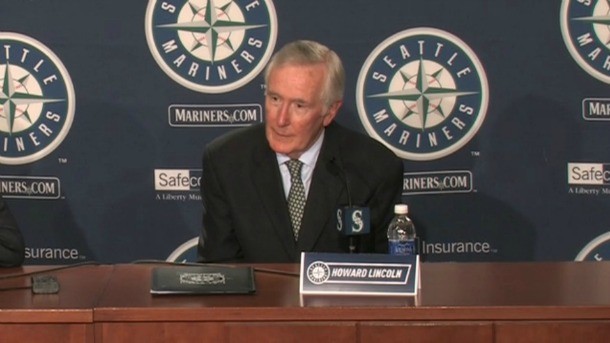Nintendo Of America To Sell Majority Of Ownership In Seattle Mariners

Today, Nintendo of America announced that it plans to sell the majority of its interest in the Seattle Mariners Major League Baseball team. According to the release, Nintendo of America currently plans on retaining a 10-percent stake in the Mariners, with the rest of its holdings being offloaded to other members of the current ownership group.
CEO Howard Lincoln is set to retire from his current position and will be replaced by John Stanton. Lincoln, who was the former chairman of Nintendo of America, will remain as a member of the board of directors of the First Avenue Entertainment LLLP partnership that owns the Seattle Mariners in order to represent Nintendo's interests.
Nintendo acquired majority stake in the Mariners in 1992 under then president and chairman Hiroshi Yamauchi. "From the first day of our involvement nearly 24 years ago, Nintendo has had two goals for its investment in the Mariners,” Lincoln said in a statement. "First, we wanted to assure the permanence of the team in this great city. And on that count, I am proud and gratified that this agreement further solidifies that goal. On the other hand, I’m equally disappointed that we have not been able to host a World Series game for our fans."
Though specifics were not released on the sale, a valuation of $1.4 billion for First Avenue Entertainment's holdings was used.
Our Take
After nearly 24 years of majority ownership, the sale represents the end of an era for both Nintendo and the Seattle Mariners. Howard Lincoln played a major role in keeping the Mariners in Seattle and saw them through the organization's best years with rosters that included players like Ken Griffey Jr., Alex Rodriguez, and Randy Johnson. He is also credited with leading the charge to acquire superstar Ichiro Suzuki in the early 2000s. However, his time with the team was also marred by controversy thanks to poor personnel decisions and a standoffish relationship with media.









